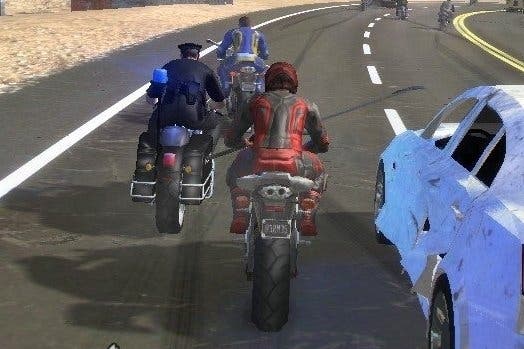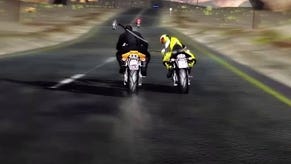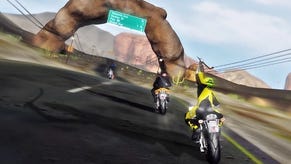Road Redemption Early Access review
A rash move?
There are basically two kinds of retro game revivals. One is when a publisher or developer dusts off an old IP with a fresh lick of paint, hoping nostalgia and more than a little blind hope will attract enough ageing fans to make the exercise worthwhile.
The other is what is euphemistically called the "spiritual sequel". That's when a game is clearly derived from an existing game, but those making it don't have the rights to actually make that game. Usually, the game in question hasn't seen a real sequel in many years, its ownership either lost in a fog of publisher takeovers and mergers, or else it has simply fallen through the cracks because it's deemed to belong to a bygone age. The spiritual sequel is essentially a whimsical way of saying, "We're remaking this game even though we don't have the rights, but we've changed the name and are keeping our fingers crossed."
So it is for Road Redemption, which openly invokes the spirit of EA's Road Rash series, which hasn't seen an official sequel since a forgettably average Game Boy Advance title in 2003.
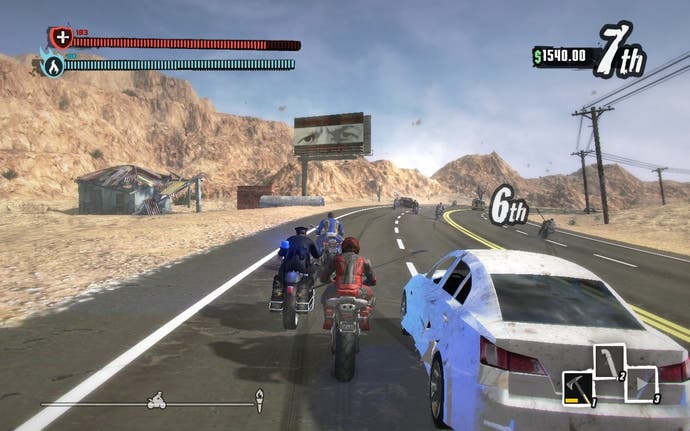
For those too young - or too uncool - to remember, Road Rash was very much a product of the 1990s. It was extreme, it was rad, it was even "to the max", and if it had a baseball cap you can be sure it would have been worn back to front. A motorbike racing game, it had one key selling point: you could smash the other racers in the face with a variety of melee weapons. That's also the key selling point of Road Redemption, but indie developer DarkSeas Games is adding lots of other stuff as well.
The good news is that the core of the game - that ability to whizz along in an arcade-style race while clobbering other racers - provides a foolproof foundation. Even in this Early Access version, there's a lot of pleasure to be had from simply doing those two things. The handling doesn't even try to be realistic, and while there's a lot of polish still to be added, it's already a lot of fun to play.
Layered on top of this reliable framework is a smattering of ideas of variable merit. First is the structure. The game is presented as a race across America, with each randomly assigned event taking you one step closer to the East Coast from your Californian desert starting point. The twist is that all your progress is lost as soon as you die. You can earn cash in each event and use that to buy perks and power-ups, but these too are lost should you suffer the ignominy of the Game Over screen.
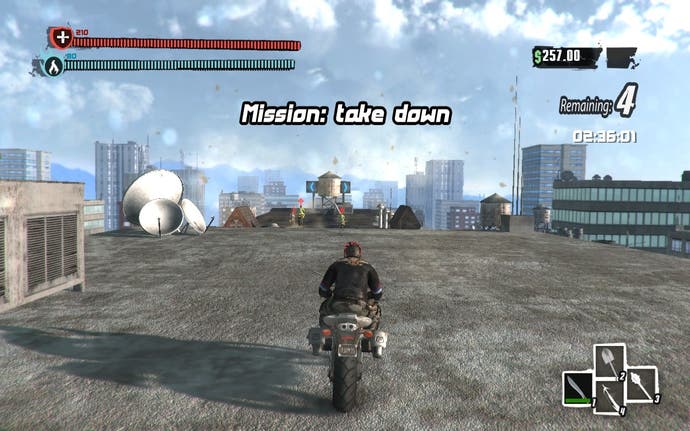
In other words, the longer you play, the further you'll progress, and the more power-ups you'll amass. You can earn health back, either by defeating other racers or buying food items between events, but one life is all you get.
It's only after you die that you get to make permanent improvements to your racer, trading in whatever XP you earned in your run to unlock items on a skill tree. These persist regardless of your death and represent a slower but more dependable way to improve your chances. There's a catch here as well though: any XP unspent when you leave the upgrade screen is gone.
There's a nice push and pull here, between the immediate old-fashioned gratification of each run at the cross-country challenge, and the long-term character improvement of a more modern title, and while it takes a little getting used to, the rhythm it creates is very compelling.
Less successful are some of the other additions. Firearms, for example, are among the weapons you'll earn. In theory, it's a great idea. In practice, a horrendous manual camera, mapped to the left controller stick or the mouse, makes aiming while steering almost impossible. To make matters worse, the fire button is on the right shoulder bumper on a controller, right above the accelerator trigger, and there's currently no way to remap the buttons.
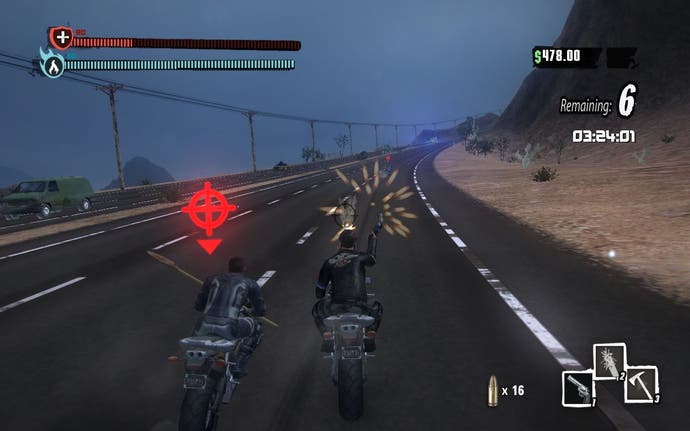
The game's procedural generation is also problematic. Roads can twist and turn like a rollercoaster, often obscuring what lies ahead, and the game's menu of event types - also served up at random - swings between simple races and combat challenges to situations that are often grossly unfair. You may, for example, find that a level takes place during a tornado with cars dropping from the sky. These can land on you without warning or else send obstacles into your path. The game's dust and lighting effects are heavy-handed, so it's far too easy to crash, lose your health and all your progress because of a collision you literally couldn't avoid.
Throughout, the physics is both a source of hilarity and frustration. Sometimes you'll drive through obstacles, sometimes they'll stop you dead and sometimes they'll send you hurtling for miles through the air. Collision detection isn't great, so attacking others can mean swinging wildly as other racers draw near and hoping one of your swipes finds its target before they do.
In the aforementioned tornado levels, or just when you've attracted so much police attention through your GTA-style "wanted" gauge that you're mobbed on all sides, there's so much going on, and so many things crashing into each other, that you simply keep accelerating and hope for the best. Often the result is just delighted "did you see that?" laughter, but it's luck, not skill, that gets you through.
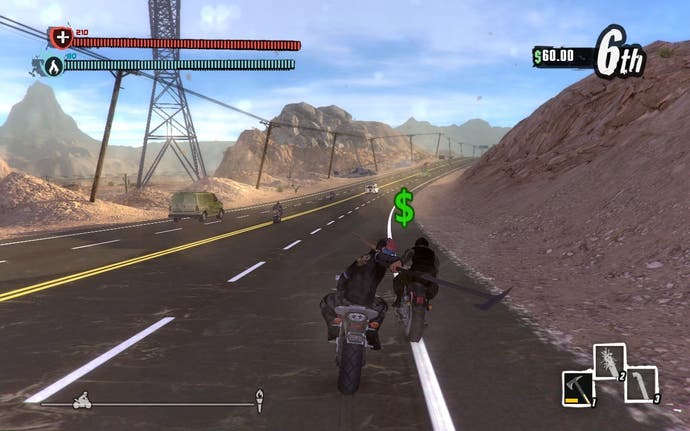
Even in the basic race events, it's hard to tell what's going on. There are always dozens of other bikes on the road but only some of them are actually in the race. There's a vagueness to victory, as you never feel like you've beaten a defined pack of racers, only that you've stayed ahead of an arbitrarily designated rival by the time you reach the finish line.
There are a lot of problems, in other words, and the development team has a lot of balancing and polishing to do if Road Redemption is to become a genuinely satisfying and well-rounded successor to its inspiration. Yet for all of the scruffiness, rough edges and half-baked ideas, the game works brilliantly where it matters. Hopefully, DarkSea Games can retain that deliciously simple and addictive core, while ironing out the kinks in everything else.
Eurogamer's alpha, beta and Early Access reviews are reviews of games that are still in development but are already being offered for sale or funded by micro-transactions. They offer a preliminary verdict but have no score attached. For more information, read our editor's blog.
